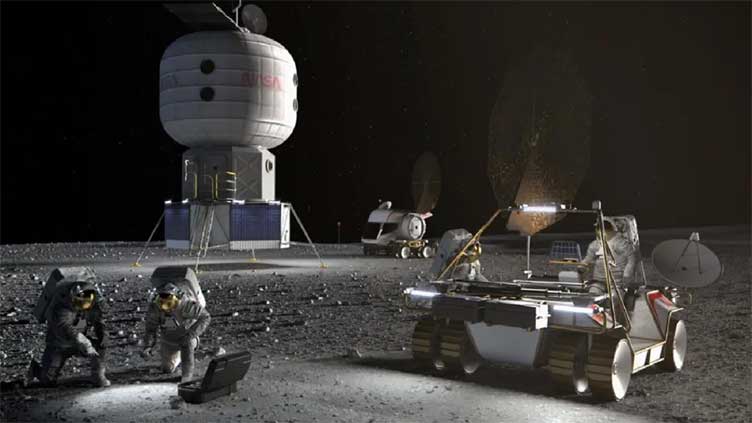Nasa's 'first lunar outpost' with stunning views, three floors for humans to live in

Technology
Nasa's timeline reveals when humans will return to the Moon
(Web Desk) - Nasa astronauts could stay inside a three-storey "inflatable" space home during trips to the Moon.
Space heroes travelling to the lunar surface as part of Nasa's Artemis missions could be sleeping inside the giant pod as soon as the 2030s.
Nasa hasn't confirmed an exact final design for the so-called Lunar Surface Habitat.
But the space agency has released early concepts and schematics for what it might look like.
The idea is that eventually, astronauts will dock at an orbiting space station called the Lunar Gateway – and then descend to the Moon for missions.
"Nasa is currently developing concepts for sustained crewed missions to the lunar surface," said Nasa's Paul Kesseler in 2022.
"Sustained missions will occur on annual basis for durations of 30 days or more.
"To house and support the crew, Nasa is exploring the use of a lunar Surface Habitat."
He added: "The Surface Habitat is the core habitation capability for the Artemis Base Camp.
"As a non-mobile, habitable element, it effectively anchors long-term, human-led exploration at the South Pole of the Moon."
The three-storey structure would have an inflatable upper section, and would provide its own communications, life support, and waste management – including from the built-in toilets.
And it could serve as a test-bed for future housing on Mars.
The bottom deck of the structure would be an "aluminium pressure vessel".
And the upper two decks would be contained inside an inflatable that's just over 21 feet wide.
Nasa notes that the habitat could house "as many as four crew members on shorter surface stays".
The first level would have airlock access, as well as a work bench, computer station, and access to spacesuit ports.
On the second level, there's an exercise area with a gym machine, a "hygiene" room, and a bio lab.
You'd climb up a central ladder to reach this floor, entering the inflatable portion of the habitat.
An early design for the second floor also flags it as having a "possible window" – which would provide thrilling Moon views, if it's installed.
Then on the third floor is "space for two private crew quarters".
They have enough room for "sleeping and stretching", as well as a personal desk.
This floor would also feature storage, a galley kitchen for meal preparation, and a medical area with a "stowable bed" and potentially privacy curtains too.
Astronauts would be able to use this habitat as a lunar base for missions out into the dark areas of the lunar South Pole.
Nasa's series of Artemis missions aims to create a permanent lunar outpost
And the first American crewed landing on the Moon since 1972 is expected to take place in 2026.
But it's expected that a surface habitat won't arrive on the Moon until the 2030s.


